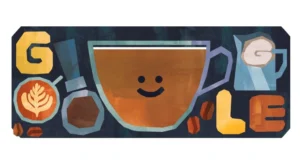The Crucial Role of Toys in Shaping a Child’s Psychology: More Than Just Playthings
By TOI Staff
July 24, 2023
Update on : July 24, 2023

Every parent acknowledges the invaluable role of toys in a child’s growth and development. Their colorful, attractive shapes and structures foster immediate bonding with kids. However, these simple objects of amusement serve a much deeper purpose than merely keeping a child occupied. They are powerful tools in influencing a child’s psychological development.
Toys stimulate a child’s mind, honing their cognitive skills, fine-tuning their motor abilities, enhancing their creativity, and shaping their social and emotional aspects. They are the cornerstone of a child’s exploratory world, serving as the first stepping stones into the labyrinth of life and knowledge.
Toys as Instruments of Cognitive Development:
Remember the overwhelming joy when your child received their first kids stuff toys? These delightful objects of various shapes, colors, and textures immediately catch a child’s attention, kickstarting their cognitive journey. Toys are instrumental in engaging a child’s senses, spurring curiosity and wonder, stimulating their minds, and promoting an understanding of cause and effect relationships.
A baby shaking a rattle and being rewarded with sound or a toddler fitting shapes into their corresponding holes in a puzzle, are both learning cause-effect dynamics, problem-solving, and honing their spatial reasoning. Building blocks and LEGO sets challenge a child’s cognitive abilities further, fostering creativity, imagination, and advanced problem-solving skills.
Toys as Aids for Motor Skill Development:
Toys play a crucial role in developing a child’s motor skills. From an early age, the act of grasping, squeezing, and throwing toys helps infants refine their gross motor skills. These include activities like crawling towards a toy or pulling a toy truck along, which improve coordination and physical strength.
Fine motor skills, on the other hand, involve more precise movements. Activities such as stringing beads, manipulating dolls, or assembling puzzle pieces help to develop these skills. Not only do they enhance hand-eye coordination, but they also improve precision and control, which are necessary for tasks like writing and tying shoelaces later in life.
Toys and Emotional & Social Development:
Toys also help children understand and express their emotions. They may form attachments to certain toys, mirroring human relationships. For instance, a soft cuddly teddy bear can offer comfort, security, and companionship, teaching a child about love, care, and empathy.
Moreover, toys, especially those designed for group play, encourage social interaction. Play-dates and playground rendezvous revolve around shared toys, teaching children essential social skills such as sharing, cooperation, negotiation, and even conflict resolution. Role-playing games with dolls or action figures enhance a child’s understanding of societal roles and norms, fostering a sense of empathy and understanding.
Toys as Catalysts for Imagination and Creativity:
A child’s imagination is a vibrant, boundless landscape, and toys are the catalysts that fuel this creativity. A simple toy car can transform into a zooming race car one minute and a heroic rescue vehicle the next. Dolls and stuffed animals can host elaborate tea parties, become brave adventurers, or even take on roles as teachers or parents.
Through such imaginative play, children are actively exploring possibilities, forming hypotheses, and seeking solutions – skills that are essential in creative thinking and problem-solving. Toys not only foster creativity but also help children make sense of the world around them.
Toys and Therapeutic Value:
Toys also have a therapeutic value. For children facing emotional or psychological challenges, toys can be used as non-threatening mediums for communication and expression. Child therapists often use toys to help children communicate their feelings, fears, and experiences that they might otherwise struggle to articulate.
Conclusion:
In the panorama of childhood, toys are more than mere objects of play. They are the unsung heroes of child development, molding cognitive abilities, motor skills, emotional understanding, social skills, and creativity. These humble playthings are, in fact, ‘kids’ stuff of growth.’ They allow children to explore, understand and connect with the world, forming a vital part of their psychological development.
Parents, educators, and caregivers must appreciate the importance of toys, choosing them wisely, and using them effectively in the developmental journey of their children. Remember, the right toy can turn playtime into an enriching learning experience. As adults, we need to ensure that these playful, yet powerful tools are given their due significance in the journey of a child’s growth and development.
Read more: The Crucial Role of Toys in Shaping a Child’s Psychology: More Than Just Playthings















